ROOM: The Space magazine is one of the prominent magazines on space exploration, technology and industry. At ROOM, we share a common goal – advancement of peaceful space exploration for the benefit of humankind, all while bringing you comprehensive articles on an assortment,a range of contemporary topics. Our authors include scientists and industry leaders from all over the world, which lets us bring you the most up-to-date and accurate information about space exploration sputnik 2.
 October 2018
The ethics of space exploration
October 2018
The ethics of space exploration
... meaningfulness of the activities themselves. As a child, the first image that came to my mind when thinking about space exploration, was that of an astronaut delicately picking up a rock, somewhere on the vast expanses of the red planet...to do our thinking and speaking”, is considered a positive outcome by most technology gurus today. Space exploration now – a futuristic vision of mining asteroids and the Moon for water, minerals and precious ...
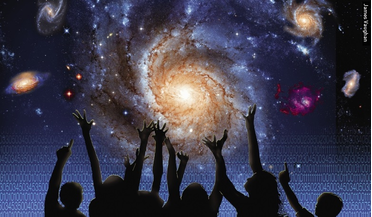 February 2022
Revolution and responsibility: the challenges of space
February 2022
Revolution and responsibility: the challenges of space
...much of this understanding reflects back on our home planet, there is much that the history of space exploration can teach us about our responsibility for the terrestrial environment. Jacques Arnould takes a philosophical look ... between sciences, cultures and religions, with a particular interest in two areas: life sciences and space exploration. He has written several books on the historical and theological dimensions of the life sciences. Since...
 October 2024
Space exploration remains a crucial endeavour for humanity
October 2024
Space exploration remains a crucial endeavour for humanity
...This debate broadens perspectives on economic development, scientific progress and educational inspiration fostered by space exploration. Medical device company Lazurite’s ArthroFree Wireless Camera System is the first FDA-cleared..., including transportation, logistics and agriculture. The significant return on investment historically offered by space exploration also underscores its economic impact. For example, the Apollo programme of the 1960s, ...
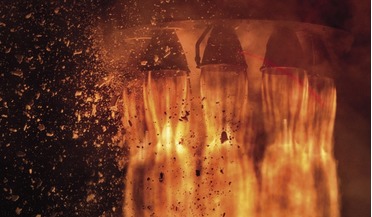 July 2021
Nitrous oxide – a green propellant for commercial space exploration
July 2021
Nitrous oxide – a green propellant for commercial space exploration
... nitrous oxide from the running as a rocket propellant for decades until the commercialisation of space exploration began in the mid-1990s. By that time, there were several commercial companies building... was soon pushed out of consideration by other propellants featuring higher specific impulse performance. The commercialisation of space exploration has, however, induced a revival of interest in this propellant, which can be considered the ‘dark...
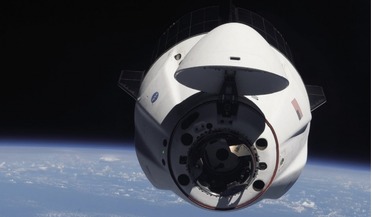 July 2021
Collaboration and competition in lunar exploration
July 2021
Collaboration and competition in lunar exploration
... of LEO programmes - as well as robotic lunar exploration missions. Currently, over 30 countries were reported to be actively financing space exploration activities Moreover, space exploration is not only attracting the interest of an increasing ...sector, providing the opportunity for governments to rethink their strategic plans in space exploration. New lunar exploration era The next decade will be marked by the emergence and consolidation of...
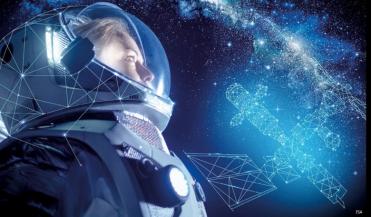 October 2024
Space industry trajectory under the spotlight of cultural anthropology
October 2024
Space industry trajectory under the spotlight of cultural anthropology
... this lens of expertise that I confront current and historic perceptions of human space exploration. Who really benefits from human space exploration when access is granted only to those who have the money to get ...my LinkedIn network. If my anthropological fieldwork taught me anything, it was that arguing against human space exploration would alienate me from the space industry. But we have to make tough decisions as adults, don’t we? We have to...
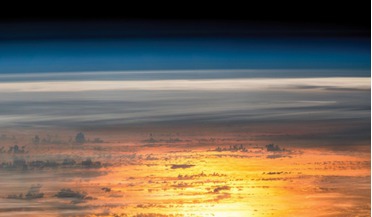 August 2016
Are the days of innovation in global space over - or just beginning?
August 2016
Are the days of innovation in global space over - or just beginning?
... ideas, the Cold War battle for rocket technology peaked in 1957 with the launch of Sputnik. Despite American confidence in its knowledge production and superior liberal capitalist ideas, the Soviet Union...times. We must not underestimate the contribution made to the arts and to our cultural history by space exploration and space travel. Technological advancement, accelerated by the 20th century’s love affair with worldwide warfare, will mean that...
 October 2018
Radiation study paves way for safe deep space exploration
October 2018
Radiation study paves way for safe deep space exploration
...provides a detailed description of the MARE payload and its implications for enabling future human space exploration. While astronauts on the International Space Station (ISS), at an altitude of about 400 km, are beyond the radiation ... and eventually round-trips to Mars. It is the first human-rated spacecraft for beyond-LEO space exploration since the Apollo programme. Crew radiation protection is a design driver of the Orion spacecraft and...
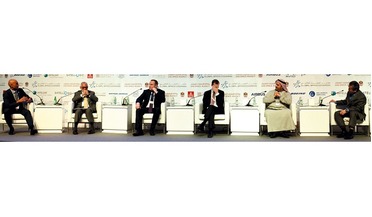 July 2019
Next steps in human space exploration
July 2019
Next steps in human space exploration
...its development and growth. Presentations focussed on the United Arab Emirates’ expanding international interests in space exploration and development, including the plenary panel highlighted below on ‘The Future of Manned Spaceflight’, ...to the way it used to be billions of years ago. Every one of us has talked about using space and space exploration to make life better for humans here on the planet and in fact that’s our goal. We’ll continue to...